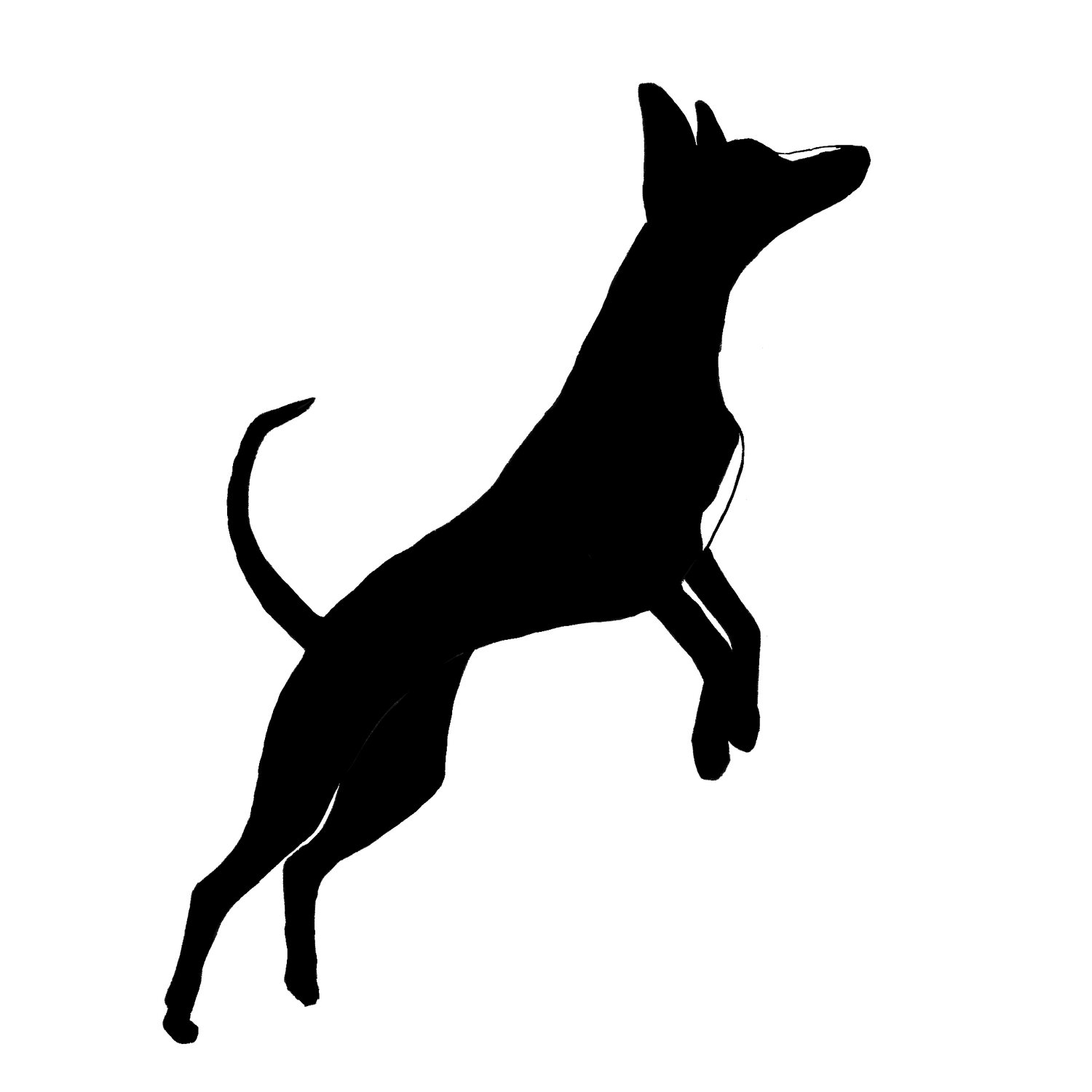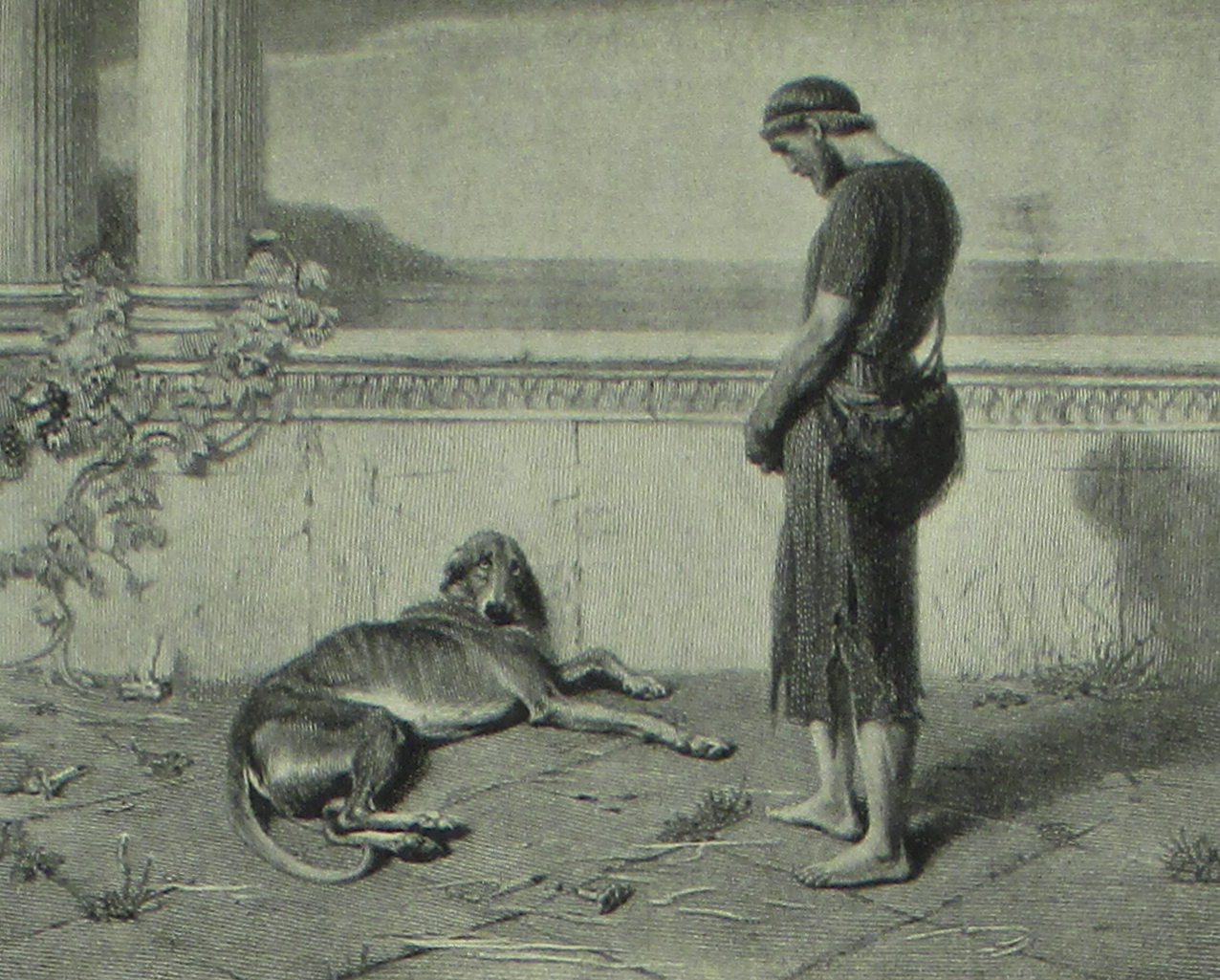The Story of Argos
Argos, the faithful hound of Odysseus, is the namesake of my business; why?
A Lakonian Hound, a hunting breed from the southern peninsula of Greece, Lakonia (or Laconia).
If you ever read Homer’s The Odyssey in high school English class, then maybe you remember the brief appearance of Odysseus’ loyal old hound, Argos. If not, here is a short synopsis of Book XVII from Emily Wilson’s translation:
Telemachus [Odysseus’ son] heads out, telling Eumaeus [the swineherd who is helping them] that the stranger will have to go begging his way. When the boy reaches home, Eurycleia [the old nursemaid] greets him warmly, as does a tearful Penelope. … Eumaeus and Odysseus [who is in god-given disguise] set out towards the town center. At the fountain they meet the goatherd Melanthius [a suitor], who insults them and kicks Odysseus. Eumaeus prays for revenge. Melanthius returns to the palace and eats. Argos, the old dog left behind by Odysseys as a puppy twenty years earlier, recognizes his master and then dies.
Now, Argos’ role in the story is quite sad, and mostly used as a literary tool to show the fall of Odysseus’ house. But there is more meaning to the story than just to show progression of plot — the very presence of the hound means much, much more.
Dogs represent many things in many cultures; most commonly, they are guides to the afterlife, portents of death, or simply symbols of the connection between our human world and the natural world. I will insert here an excerpt of Argos’ appearance in Book XVII:
As they spoke, Argos, the dog that lay there, raised his head and ears. Odysseus had trained this dog but with no benefit—he left too soon to march on holy Troy. The master gone, boys took the puppy out to hunt wild goats and deer and hares. But now he lay neglected, without an owner, in a pile of dung from mules and cows—the slaves stored heaps of it outside the door, until they fertilized the large estate. So Argos lay there dirty, covered with fleas. And when he realized Odysseus was near, he wagged his tail, and both his ears dropped back. He was too weak to move towards his master. At a distance, Odysseus had noticed, and he wiped his tears away and hid them easily, and said,
“Eumaeus, it is strange this dog lying in the dung; he looks quite handsome, though it is hard to tell if he can run, or if he is a pet, a table dog, kept just for looks.”
Eumaeus, you replied,
“This dog belonged to someone who has died in foreign lands. If he were in good health, as when Odysseus abandoned him and went to Troy, you soon would see how quick and brave he used to be. He went to hunt in woodland, and he always caught his prey. His nose was marvelous. But now he is in bad condition, with his master gone, long dead. The women fail to care for him. Slaves do not want to do their proper work, when masters are not watching them. Zeus halves our value on the day that makes us slaves.”
With that, the swineherd went inside the palace, to join the noble suitors. Twenty years had passed since Argos saw Odysseus, and now he saw him for the final time—then, suddenly, black death took hold of him.
Odysseus and Argos reunite, Thirty More Famous Stories Retold by James Baldwin(1905)
No one, not even his own son, are able to recognize Odysseus in his disguise except by divine intervention, as he was disguised by Athena herself — except Argos. It speaks to the deep, instinctive bond between human and animal, forged not by commands or tricks, but by mutual respect, loyalty, and understanding.
That is our mission statement for training. Whether you're working with a dog, cat, bird, or reptile, real training begins not with dominance or control, but with observation, empathy, and trust.
Just like Argos, animals remember who respects them.
They recognize our presence, our consistency, and our energy.
Training is about building a relationship that lasts — not just obedience, but loyalty, recognition, and companionship.
In Honor of Argos:
Naming this business after Argos is a tribute to the oldest kind of bond we share with animals — one rooted in instinct, patience, and deep understanding.



